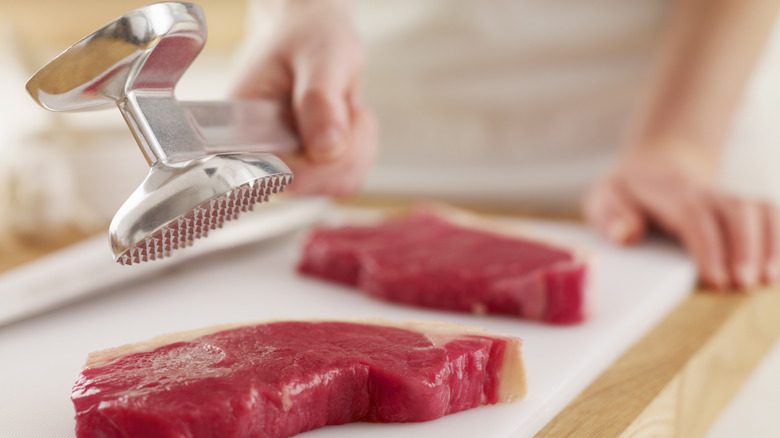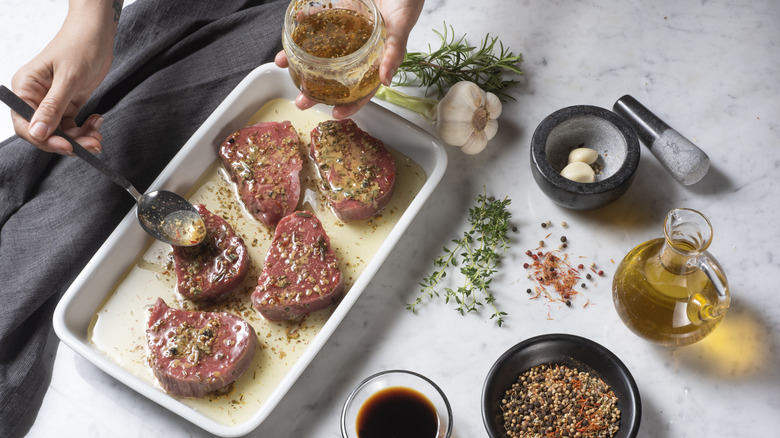Do You Really Need A Meat Tenderizer?
It's easy to wind up with a kitchen drawer full of outdated kitchen tools that were once popular. So, when it comes to adding one more gadget, you may be asking yourself if you really need it. But when it comes to a meat tenderizer, the answer may actually be yes.
The typical tool that home cooks use for tenderizing is a meat mallet. Often made of metal, it's used to pound chicken, beef, or pork to improve its texture. By beating the meat with a mallet, you can easily break up the connective tissues that can make it tough or too chewy.
The simple process takes mere minutes to do but can produce far more succulent results. Plus, if you've taken the time to whip up a flavorful marinade, tenderizing the meat will help it soak up all of that goodness. As an added bonus, flattening the meat can help it cook more evenly.
If you're grilling up the likes of filet mignon on the regular, you may not need a tenderizer, but many other cuts are made better by tenderizing. When it comes to beef, flank, sirloin, tri-tip, and skirt steaks are all improved with a few smacks from a mallet. Game like elk and venison come out juicier, too. And if you're looking to make a perfectly moist chicken breast that cooks up quickly, tenderizing is the way to go.
Other ways to tenderize meat
While using a tenderizer can produce juicy results, there are other ways to make sure your meat turns out moist. While it may not be as satisfying as pounding out the meat with a mallet, you can achieve similar results by piercing it with a fork. And if you still want to flatten it, you can also give it a few whacks with a heavy-bottomed pan. Just note that this will take a lot longer than it would if you used a mallet.
Slow cooking your beef or other meats is one easy technique if you have the time. Marinating is another option. Try using acidic fruits in your marinade or let the meat rest in a milk bath. You can even use sparkling water as a budget marinade — any of these methods will help to naturally soften it. Just be sure to avoid over-marinating, which can lead to overly soft meat and potential food safety issues. Stick with 24 hours or less for the best results.
Finally, you can purchase a meat tenderizing powder and keep it on hand — a little goes a long way. It works quickly on its own to reduce toughness in the meat, but you can also give your marinade a boost with a sprinkle of it.


